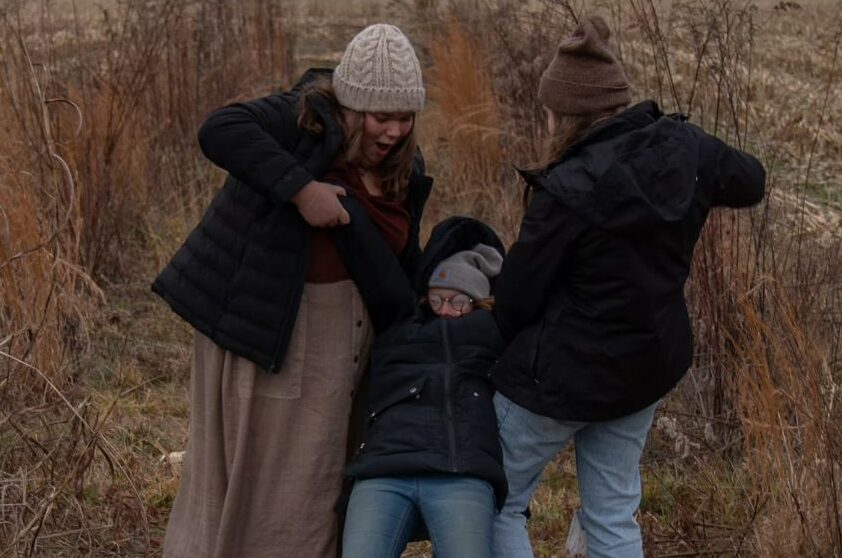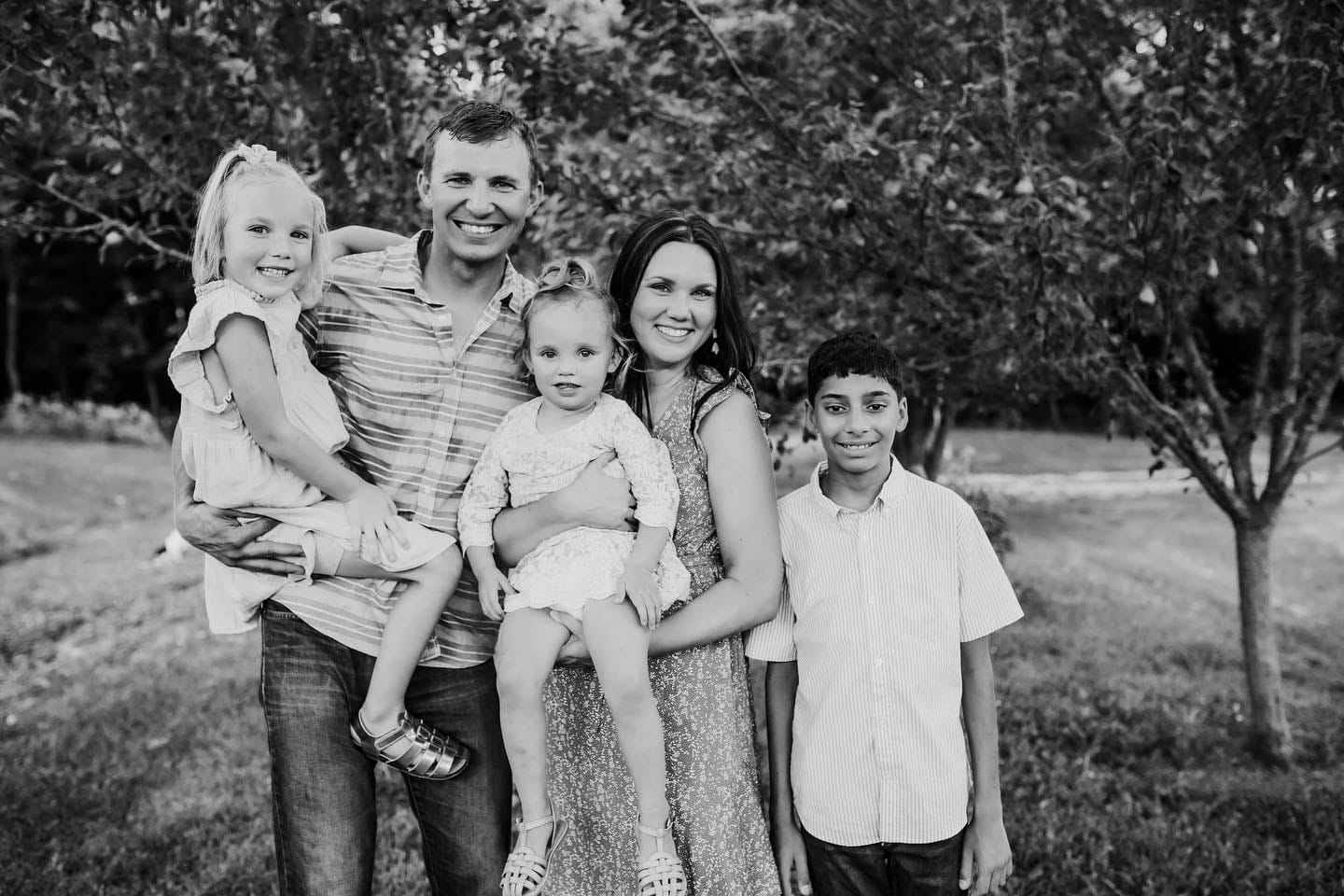Written by Sara Brawner
(Since this blog was written, Sara and BJ’s four foster children have been adopted!)
I always imagined that once our home was finally filled with small feet, giggles and spilled milk that I’d feel completely content. As a woman who has wanted to adopt for several years, and as a woman who has walked through the loss of four children, I couldn’t imagine being anything other than borderline-obsessed with my kids and my role as a mother some day. Young mothers would post on social media about being sick of their three-year-old’s tantrums or the piles of laundry swallowing their beds, and I would roll my eyes and think about how I would be the most grateful mother when the time came.
And here I am, twenty-five years old and blessed with four foster children in my home and another precious life growing in my belly. My table is full and my husband is amazing and these kids are the most beautiful kids I’ve ever seen. They love each other and play so hard and are learning so much. They call us Mommy and Daddy and have asked us if they can please stay in our home forever. We get so many kisses and hugs every day. This life is everything I dreamed of and more. And yet I still find myself fighting for joy like I did before we welcomed them into our home.
I’ve tried to figure out the source of this struggle, and I think it comes down to two things: we are extremely selfish and comfort-oriented, and fostering/adopting is a beautiful solution to a really terrible and broken situation.
The first source of the struggle shocked me. I knew I was selfish, but I had no idea how selfish I was until we had children living in our home. We got our children in two stages–one boy came into our home six months ago, and the other three were welcomed a few months later.
The first week of each transition was a total detox of all of my comfort.
I was emotionally, mentally, spiritually and physically exhausted. My husband, who is more generous with his love and resources, could immediately see the beauty in our children. All I could see was how they were ruining our lives with less sleep and more messes and intimidating behaviors. An ugly and honest confession that I am not proud of: I would have been fine with each of our children going to a different home in those first few days.
I often tell my husband that I’m thankful to be out of that small window of time when our children were first placed with us. And I would tell anyone who is looking into fostering and adopting that in the times when you feel all of your comfort being squeezed out and all of your normalcy going out the window, that there is so much joy on the other side if, by the grace of God, you can push through. I love each of our kids now as if I had given birth to them. They feel like ours. They are worth every loss of control and comfort. And though the discomfort has continued throughout the past months, it has lessened significantly and become worth every growing pain as we’ve gotten to know and love these kids.
The second source of the discomfort is that fostering and adopting is a really beautiful and redemptive response to a really broken situation. Welcoming an abused and/or neglected child into your home requires welcoming all of the sadness and confusion of their stories into your home as well. No amount of training could prepare me and my husband to be immersed in the reality of abuse and neglect for an indefinite amount of time. Similar to someone learning about poverty in a third world country and then seeing it firsthand, we felt like for the first time ever we could not escape the reality of the brokenness of this world. Even as we ease into knowing our children more, there is a heaviness that accompanies the issues that these children are working through. There is a constant anger that this is how our world is, that these helpless children have been treated so poorly.
The first source of my frustration—the selfishness and hunger for comfort—just needs to be killed. N.D. Wilson says in his book “Notes from the Tilt-a-whirl”: “Do not resent your place in the story. Do not imagine yourself elsewhere. Do not close your eyes and picture a world without thorns, without shadows, without hawks. Change this world. Use your body like a tool meant to be used up, discarded, and replaced. Better every life you touch.” Our comfort is not the goal in this life. The first source of my struggle needs to be killed daily, washed clean by the blood of Jesus. We take our discomfort captive and remember that Jesus gave up all of His comfort for us.
The second source—coming face to face with the brokenness of this world—is uncomfortable. It’s heavy and it’s hard. But it’s not the end of the story. We can use this heaviness to point us to the day when all will be made well, when God will wipe every tear from our eyes. And where there is deep sorrow, we can pray and believe that there can be even deeper joy. Andrew Peterson writes, “Maybe it’s a better thing to be more than merely innocent, but to be broken and redeemed by love.”
This is each of our stories. This is the Gospel. We were gone astray, wandering, without home or purpose or value and God took us in. He gave us Himself. He called us His sons and daughters. He gave us a home with Him forever.
And so when it gets hard (because whether it’s the first day or the sixth month, fostering and adopting will be hard), look at the source of the struggle. If it’s about our comfort and selfishness, may we kill that and ask Jesus for a heart that loves like He loves. And if it’s about the heaviness and brokenness of this world and our children’s stories, may we remember that God is good and He is giving us a glimpse of the restoration and redemption that is to come. And it will come.
-Sara Brawner
@skbrawner3 + @billyjackbrawner3 on Instagram



